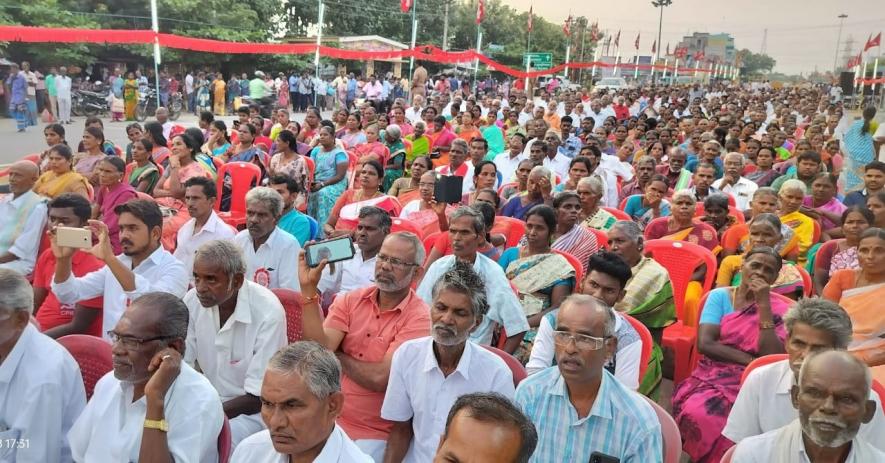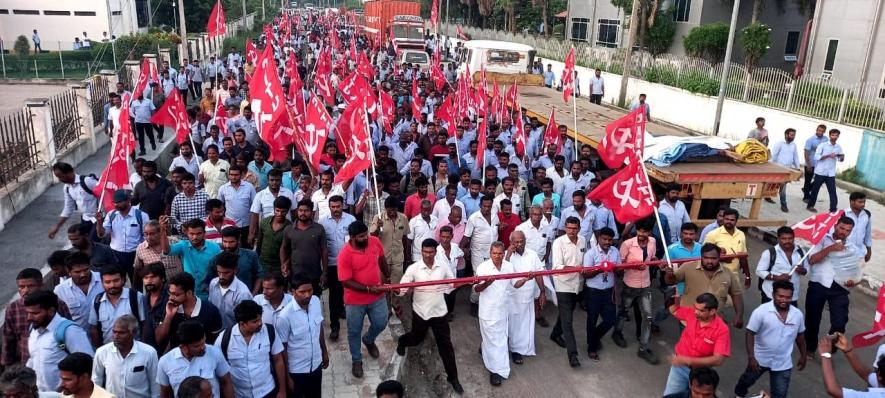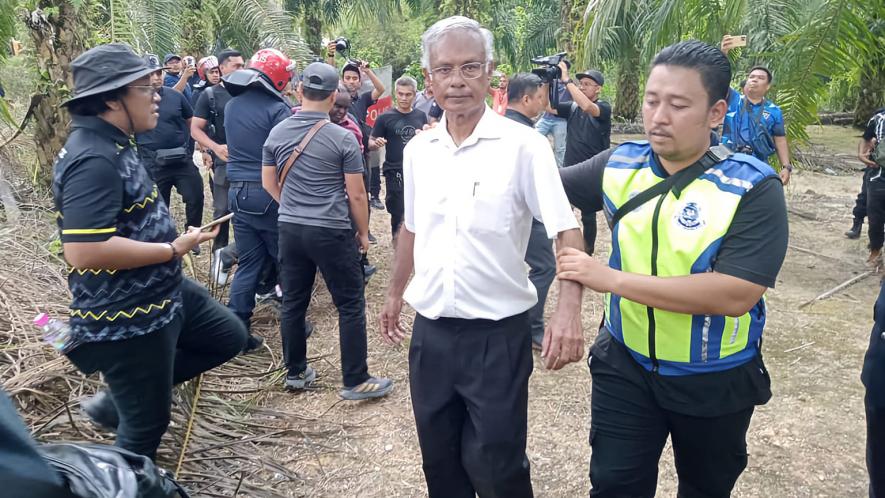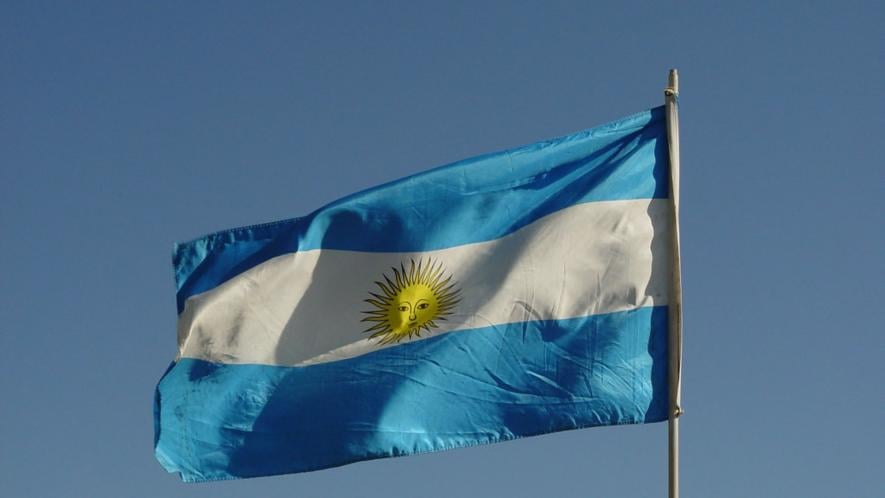Why Capitalism Cannot Finally Repress Socialism
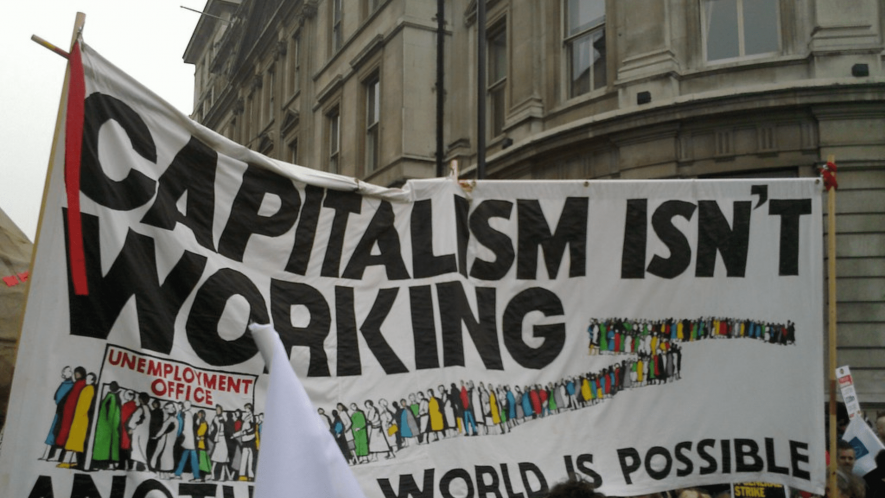
Image Courtesy: Flickr
Socialism is capitalism’s critical shadow. When lights shift, a shadow may seem to disappear, but sooner or later, with further shifts of light, it comes back. Capitalism’s ideologues have long fantasised that capitalism would finally outwit, outperform, and thereby overcome socialism: make the shadow vanish permanently. Like children, they bemoan their failure when, in the light of new social circumstances, the shadow reappears clear and sharp. Recent efforts to dispel the shadow having failed again, the contest of capitalism versus socialism resumes. In the United States, young people especially applaud socialism so much recently that think tanks like PragerU and the Hoover Institute at Stanford University urgently recycle the old anti-socialist tropes.
In fact, the capitalism-versus-socialism contest does not really resume because it never really stopped. As changing social conditions changed socialism—a process that took time—it sometimes seemed to wishful thinkers that the systems struggle had ended with capitalism’s victory. Thus, the 1920s saw anti-socialist witch-hunts (especially the Palmer raids by the US Department of Justice and the Sacco and Vanzetti persecution) that many believed at the time would extinguish US socialism.
What had happened in Russia in 1917 would not be allowed to sneak into the United States with all those European immigrants. The grossly unfair Sacco and Vanzetti trial (recognised as such even by the state of Massachusetts) did little to prevent—and much to prepare for—subsequent similar anti-socialist efforts by government officials in the United States.
With the 1929 crash, socialism revived to become a powerful movement in the United States and beyond during the 1930s and 1940s. After World War II ended, the political Right and most major capitalist employers tried once again to squash capitalism’s socialist shadow. They fostered McCarthy’s “anti-communist” crusades. They executed the Rosenbergs.
By the end of the 1950s, once again, many in the United States could indulge the thought that capitalism had vanquished socialism. Then the 1960s upset that indulgence as millions—especially young people—enthusiastically rediscovered Marx, Marxism, and socialism.
Shortly after that, the (Ronald) Reagan and (Margaret) Thatcher reaction tried a bit differently to resume anti-socialism. They simply asserted and reasserted to a receptive mass media that “there is no alternative” (TINA) to capitalism any longer. Socialism, where it survived, they insisted, had proved so inferior to capitalism that it was fading in the present and possessed no future. With the 1989 collapse of the USSR (Union of Soviet Socialist Republics) and Eastern Europe, many again believed that the old capitalism versus socialism struggle had finally been resolved.
But, of course, the shadow returned. Nothing more surely secures the future of socialism than the persistence of capitalism. In the United States, it returned with Occupy Wall Street, then Bernie Sanders’s campaigns, and now the moderate socialists bubbling up inside US politics. Each time (Donald) Trump and the Far Right equate liberals and Democrats with socialism, communism, Marxism, and anarchism, they help recruit new socialists.
Socialism’s enemies understandably exhibit their frustration. With so little exposure to Hegel, the idea that modern society might be a unity of opposites—capitalism and socialism both reproducing and undermining one another—is not available to help them understand their world.
Handling life’s contradictions has always, for many, entailed pretending they are not there. Very young children do something like that when they encounter a scary dog, cover their eyes with their hands, and believe so doing makes the dog vanish. With time, the children mature and grasp that the dog is still there despite hand-covered eyes. With time, too, adults will grasp that making the socialist other/shadow vanish is a capitalist project sure to fail. One effect of that failed project over the last 75 years is widespread ignorance of how socialism was continuing to change.
Over the last two centuries, as socialism spread from Western Europe across the globe, it interacted with very diverse economic, political, and cultural conditions. Those interactions yielded multiple, different interpretations of socialism. For some, it was an evolving critique of capitalism, especially its injustices, inequalities, and cyclical instability. For others, it became the ongoing construction of an alternative economic system.
More broadly, millions were brought to socialisms that aimed to change basic social institutions (family, city, government) that capitalism had subordinated to its needs. The different, multiple socialisms debated and influenced one another, accelerating change within them all.
One kind of socialism that became prominent in the 19th and 20th centuries (and still exists) focuses on economics and government. It criticises how governments are captured by the capitalist class and serve its social hegemony. It strategises that using mass struggle (and eventually universal suffrage) can free the state from its subordination to capitalism and use it instead for transition beyond capitalism to socialism.
In the 20th century, this kind of socialism offered a framework for constructing a socialist economic system alternative to capitalism. Such a socialist system entails the continuance of traditional capitalism: enterprises owned and operated mostly by private capitalists, individuals, or corporate groups. What it adds that makes it socialist is a government (often but not necessarily run by a socialist party) that closely regulates and supervises markets and enterprises.
Such socialist governments aim to moderate key effects of private capitalism including its very unequal distributions of income and wealth, extreme business cycles, and unaffordable access by the general population to healthcare, education, and much else. Progressive taxation typifies socialist governments’ means of intervening in otherwise private capitalism. Moderate socialisms of this sort are found in many European nations, in the programmes of many socialist parties around the world, and in the statements and writings of socialist individuals.
Another kind of socialism shares moderate socialism’s focus on government and economics but differs from it by transforming many or all privately owned and operated enterprises into state-owned-and-operated ones. Often referred to as Soviet socialism—because the Soviet Union adopted it a decade after the 1917 revolution—this kind assigned greater powers to the state: to set prices, wages, interest rates, and foreign trade parameters according to a state plan for the economy.
Because socialists around the world split over World War I and the Russian Revolution, one side (more aligned with the USSR) took the name “communist” while the other retained “socialist.” Soviet socialism was thus organised and operated by a state apparatus governed by the communist party of the USSR. Variations of Soviet socialism in other countries (Eastern Europe and beyond) were established and operated similarly by communist parties there. The Soviet and other communist parties always referred to the Soviet Union as a socialist system. It was mostly the enemies of socialism—or those simply uninformed—that persisted in referring to the USSR as an example of “communism.”
A third kind of socialism, comprising a hybrid form of the first two, is how the People’s Republic of China organises its economy. There the Chinese Communist Party oversees a strong state apparatus that supervises a mixed economy of both state-owned-and-operated enterprises (on the Soviet model) and private capitalist enterprises (on the moderate socialism model). It is roughly a 50-50 split between state- and privately owned-and-operated enterprises in China.
China had experimented with both moderate and Soviet socialisms since the 1949 revolution brought its Communist Party to power. Based on its critiques of both prior socialist models and the stunningly rapid economic growth achieved by the hybrid, a focus on fine-tuning the hybrid model seems settled policy in China today. The criticisms and opposition from both the Trump and (Joe) Biden administrations have not changed that.
A fourth model is newly important in and for this century even though examples of its way of organising the production and distribution of goods and services exist throughout human history. People have often organised their collaborative production and distribution of goods and services as self-conscious communities within larger societies. Sometimes such productive communities were organised hierarchically with governing groups (councils of elders, chiefs, kings, lords, and masters) paralleling how they organized residential communities. At other times, they organised productive communities more horizontally as democratic cooperatives.
A rapidly rising concept of socialism in the 21st century differs from the three basic models discussed above in its focus on and advocacy for the organisation of workplaces as democratic, productive communities functioning within society.
This fourth model emerges from a socialist critique of the other three. Socialists have acknowledged the lesser inequalities and greater economic growth achieved by the other models. However, socialists have also faced and considered when excessive powers were accorded to and abused by states and parties. Among critical socialists’ analyses, some eventually reached the conclusion that previous socialisms focused too much on the macro-level of capitalist society and too little on the micro-level.
Socialism cannot only be about the balance between private and state enterprises, about “free” versus state-regulated markets, and about market versus state-planned distributions of resources and products. That limitation can and should be broken. Failures at the macro level had causes at a micro level that socialists had too often neglected.
When socialisms left the internal organisations of production and distribution enterprises inherited from capitalism largely unchanged, they made a major error. They left in place human relationships that undermined chances for enterprises in socialist economies to reach socialism’s goals.
A truly democratic society cannot be built on a foundation of productive enterprises whose internal structure is the opposite of democratic. The employer-employee capitalist model is that foundational opposite. Capitalist employers are neither chosen by nor genuinely accountable to their employees.
In worker cooperatives, by contrast, the employer-employee division is ended and replaced by a democratic community. The employees are likewise and collectively the employer. Their one-person-one-vote decisions, by the majority, govern what gets produced: how, where, and when. They likewise decide democratically what to do with the fruits of their collective labour, how enterprise revenues will be distributed among individual workers, and as investment funds and reserve funds.
This fourth kind of socialism repairs the other three kinds’ relative neglect of the micro-level transformation of capitalism into socialism. It does not reject or refuse those other kinds; it rather adds something crucial to them. It represents an important stage reached by prior forms of and social experiments with socialism.
Previous socialisms changed because of their results, good and bad. Those results provoked self-awareness, self-criticism, and determination to improve the emerging, new forms of socialism.
Capitalism’s critical shadow returns again to challenge capitalism by inspiring a powerful new alliance of its victims with its critics. That has been, after all, the goal all along: to empower and inform social change beyond capitalism, to realise the slogan, “We can do better than capitalism.”
Richard D. Wolff is professor of economics emeritus at the University of Massachusetts, Amherst, and a visiting professor in the Graduate Program in International Affairs of the New School University, in New York.
SOURCE: Independent Media Institute
CREDIT LINE: This article was produced by Economy for All, a project of the Independent Media Institute.
